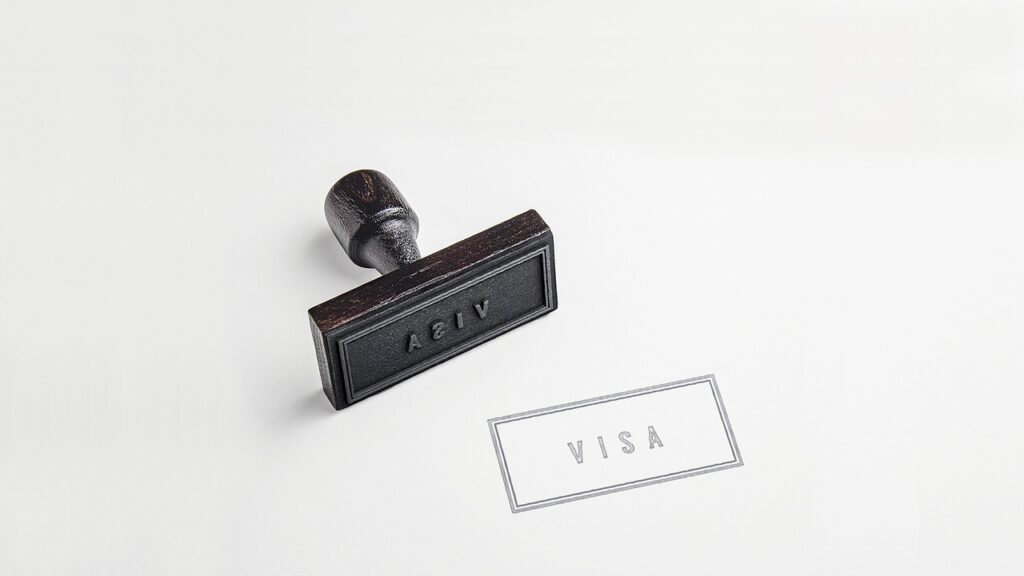Did you know that 90% of counter-offers go down the drain within the first year or two. As a long-term solution, they never seem to work out, here is why…
Continue readingLMIA Work Permit Application: What You Need to Know
LMIA Work Permit Application: What You Need to Know
So, you’re thinking of working in Canada as a temporary foreign worker? Well, that’s all well and good but there are a few things you need to know first. As one might summarize, there are a few I’s to dot and T’s to cross before making your way into the country for work. Enter the Labour Market Impact Assessment (LMIA). This is an assessment issued by the Employment and Social Development Canada (ESDC) that allows you to hire foreign nationals. The LMIA work permit is essentially an assessment of the impact that hiring a foreign national has in Canada.
If you get a positive LMIA, it would indicate that there is no Canadian citizen or permanent resident available to fill the position. Hence, it would enable an employer to hire a foreign national. If the LMIA comes out negative, then the position has to be filled by a Canadian citizen or permanent resident.
Who Can Apply for an LMIA Work Permit
Employees, especially foreign nationals, cannot apply for the LMIA work permit. Rather, it is the employer who has to apply for it on behalf of the people they hire. It should be noted that under certain circumstances a Canadian employer can hire a foreign national without a LMIA work visa. However, all the streams of Canada’s Temporary Foreign Worker Program (TFWP) mandate that the employer obtains an LMIA to hire from outside of the country.
This rule extends beyond just temporary workers. Many of Canada’s immigration routes to permanent residency mandate that there be a positive LMIA. This is just the surface of what you need to know before acquiring a LMIA based work permit.
LMIA Work Permit Application Process: An Overview
An employer can apply for an LMIA work visa as early as 6 months before the intended start date for their employee. One thing that you should note is that the application process itself may vary. It depends on the wages of the person taking the position and the province they are going to work in. For this reason, the employer should check the median hourly wage for their respective province or territory. If the position is low-wage, then the employer will need to take a few extra steps in terms of the application process.

For instance, they have to address and comply with the cap on temporary foreign workers if they have done such hiring in the past. They also have to provide transportation to and from Canada. Housing for the duration of the work term is another must. Having said that, there are certain specialized streams for employers looking to get the LMIA for specific areas of employment. This includes in-home caregivers, agriculture workers, foreign academics and hiring within the province of Quebec.
LMIA Work Permit: The Checklist of Requirements
The LMIA work permit application is submitted in the form of a hard copy, via mail, to the relevant Service Canada Processing Center. With the application, you need to attach evidence of certain criteria being met. Here is that checklist:
1) Processing Fees – Every application for the LMIA, regardless of the outcome, must include CAD 1,000, non-refundable. Only certain applicants that come under the umbrella of the in-home caregiver category may be exempt from the fees.
2) Business Proof Documents – The employer needs to attach copies of documents attesting to the fact that they are a legitimate Canadian business owner.
3) Transition Plan and Recruitment Efforts: The employer must prove that they made a reasonable effort to hire Canadian citizens or permanent residents to fill the role first. This should be the case before they turned to the temporary foreign workers’ option. They also need to submit a plan of action that shows how they intend to address the need to hire foreign nationals. The plan also needs to show how they plan to move from the temp workers to permanent resident hires.
“Your life doesn’t get better by chance. It gets better by Change.“ – Jim Rohn, American Entrepreneur
4) Wages – Employers need to submit proof of the wages they plan to pay their employees. This will differentiate high-wage positions from low-wages. It will also ensure that the workers are being paid on par with their Canadian resident counterparts who might take up the same role.
5) Workplace Safety – Foreign workers are entitled to the same workplace safety standards as Canadians. Hence, employers need to show proof that the foreign workers are covered by insurance that stands to a minimum to the health coverage offered by the province or territory where the business is.

What Happens After the LMIA Work Permit Application is Processed?
After the LMIA work permit application is processed, employers are given the results. Either you have a positive assessment or a negative. If it is positive, then they can go ahead and hire the foreign national. However, there is a caveat, it is only valid for 6 months from the date of being issued. With the clock ticking, employers must be quick to notify their employees so that they can apply for their work permit or permanent residency.
There is an option that allows the employer to qualify for a more expedited process but for that, the business has to be located outside the province of Quebec. It also has to meet one of three requirements. For one the employer needs to be giving wages that are in the top 10% of wages earned by Canadians in the province or territory.
If not that, they need to be paid at least the median of the provincial or territorial wage for the position. They can also give proof that the position is for 120 days or less. Lastly, they can use the LMIA to apply for express entry for the candidate.
Recent Posts
Women in Skilled Trades: Breaking Barriers and Shaping the Future
Remote Work Revolution: Adapting Recruitment Strategies for a Digital World
Breaking Into the Tech Industry: Skilled Trades Jobs in Canada’s Tech Boom
Expanding Your Horizons: How Canadian Employers Are Seeking Global Talent
The Art of Negotiation: Tips for Securing the Best Contract Terms as a Skilled Worker
The Future of Manufacturing Jobs in Canada: Trends and Predictions for 2024
Finding the Best Recruitment Agency For Your Business
There is no right answer when looking at what makes a recruitment agency perfect. However, there are certain traits that you can look out for that will give you the best results.
Continue readingChoosing the Right Recruitment Process: Internal Vs. External
Hiring, whether externally or internally is can only be done effectively when you maintain the right balance between employee expectations and workplace morale. Here we will explore how you can leverage the right type of recruitment for your company.
Continue reading









